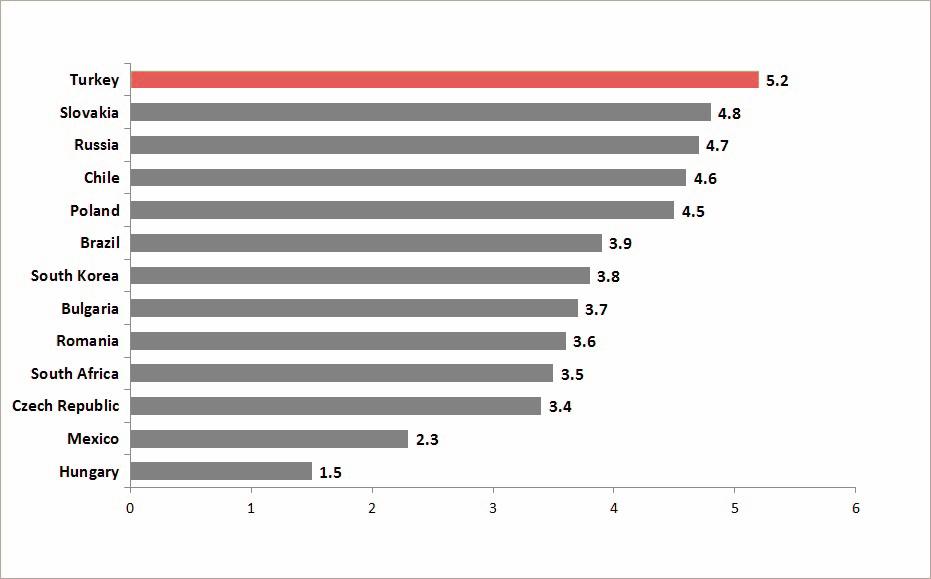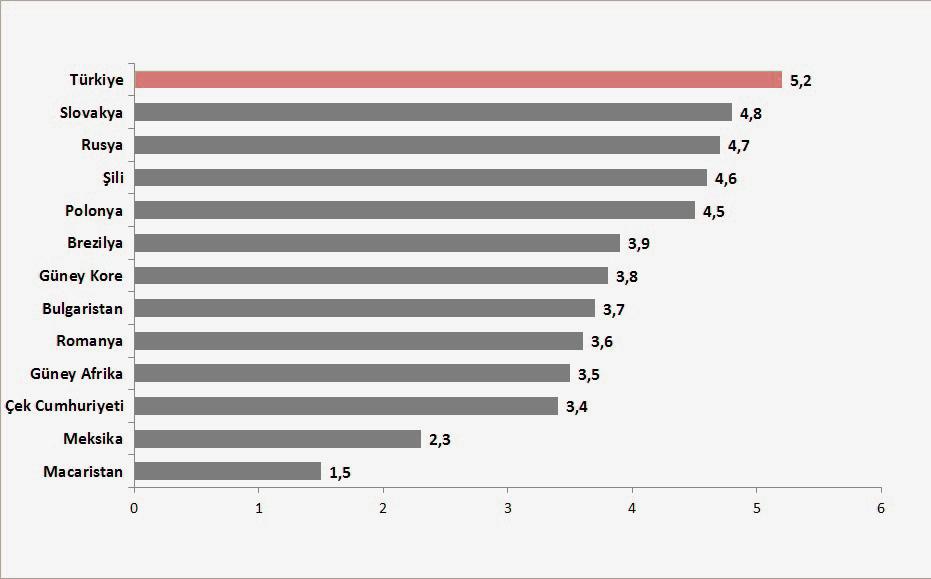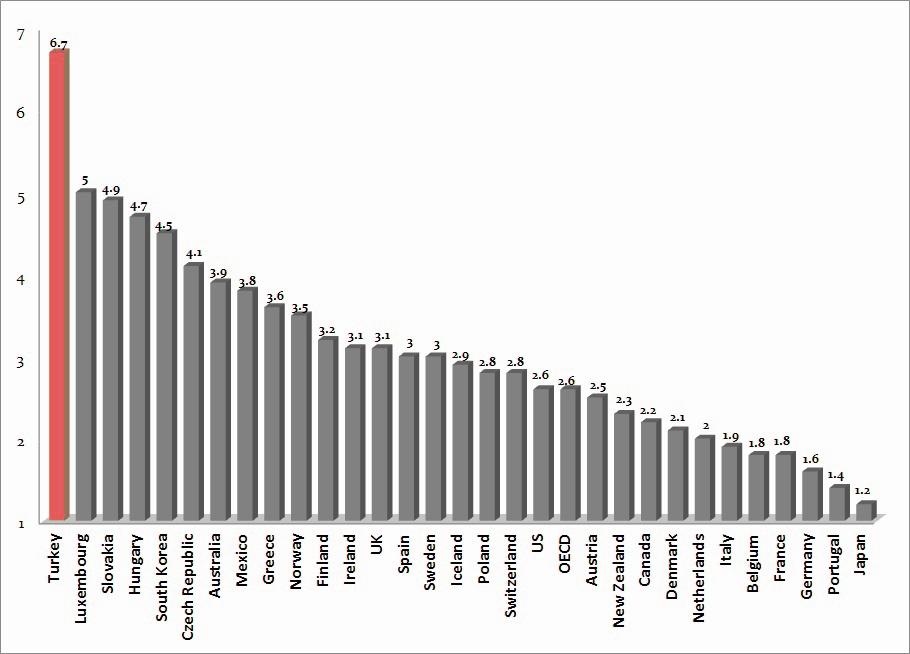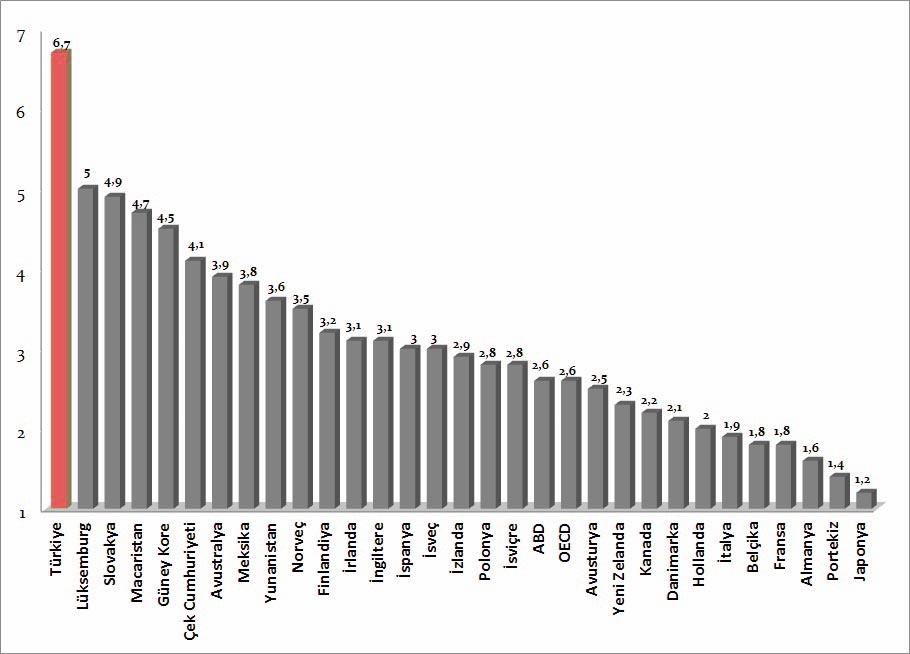COUNTRY FACTS
Turkey is a democratic, secular, unitary, constitutional republic with a population of 79m.
Since its political system was established in 1923, Turkey has become increasingly integrated with the West through membership in organizations such as the Council of Europe, NATO, OECD, OSCE and the G-20 major economies.
Turkey began full membership negotiations with the European Union in 2005, having been an associate member of the EEC since 1963 and having reached a customs union agreement in 1995.
Turkey is classified as a developed country by the CIA and as a regional power by political scientists and economists worldwide.
ECONOMIC OUTLOOK - FACTS AND FIGURES
- According to the OECD, Turkey is expected to be the fastest growing economy of the OECD members during 2011-2017, with an annual average growth rate of 6.7 percent.
- Institutionalized economy fueled by USD 110 billon of FDI in the past nine years and 13th most attractive FDI destination in the world (2012 A.T. Kearney FDI Confidence Index )
- 16th largest economy in the world and 6th largest economy compared with EU countries in 2011 (GDP at PPP, IMF-WEO).
- Robust economic growth over the last nine years with an average annual real GDP growth of 5.2 percent.
- GDP reached USD 772 billion in 2011, up from USD 231 billion in 2002.
- Sound economic policies with tight fiscal discipline.
- Strong financial structure resilient to the global financial crisis.
- Rapid recovery from the global financial crisis.
The Turkish economy has shown remarkable performance with its steady growth over the last eight years. A sound macroeconomic strategy in combination with prudent fiscal policies and major structural reforms in effect since 2002 has integrated the Turkish economy into the globalized world, while transforming the country into one of the major recipients of FDI in its region.
The structural reforms, hastened by Turkey's EU accession process, have paved the way for comprehensive changes in a number of areas. The main objectives of these efforts were to increase the role of the private sector in the Turkish economy, to enhance the efficiency and resiliency of the financial sector, and to place the social security system on a more solid foundation. as these reforms have strengthened the macroeconomic fundamentals of the country, the economy grew with an average annual real GDP growth rate of 5.2 percent over the past nine years between 2002 and 2011.
Together with stable economic growth, Turkey has also reined in its public finances; the EU-defined general government nominal debt stock fell to 39.4 percent from 74 percent in a period of nine years between 2002 and 2011. Hence, Turkey has been meeting the "60 percent EU Maastricht criteria" for public debt stock since 2004. Similarly, during 2002-2011, the budget deficit decreased from more than 10 percent to less than 3 percent, which is one of the EU Maastricht criteria for the budget balance.
As the GDP levels more than tripled to USD 772 billion in 2011, up from USD 231 billion in 2002, GDP per capita soared to USD 10,444, up from USD 3,500 in the given period.
The visible improvements in the Turkish economy have also boosted foreign trade, while exports reached USD 135 billion by the end of 2011, up from USD 36 billion in 2002. Similarly, tourism revenues, which were around USD 8.5 billion in 2002, exceeded USD 23 billion in 2011.
Significant improvements in such a short period of time have registered Turkey on the world economic scale as an exceptional emerging economy, the 16th largest economy in the world and the 5th largest economy when compared with the EU countries, according to GDP figures (at PPP) in 2011.
While many economies have been unable to recover from the recent global financial recession, the Turkish economy expanded by 9.2 percent in 2010, and 8.5 percent in 2011, thus standing out as the fastest growing economy in Europe, and one of the fastest growing economies in the world.
AVERAGE ANNUAL REAL GDP GROWTH (%) 2002-2011

 Source: IMF World Economic Outlook April 2012, Turkish Statistical Institute (TurkStat).
Source: IMF World Economic Outlook April 2012, Turkish Statistical Institute (TurkStat).
ANNUAL AVERAGE REAL GDP GROWTH (%) FORECAST IN OECD COUNTRIES 2011-2017


Source: OECD Economic Outlook No: 86.
Source:Investment Support and Promotion Agency of Turkey, http://www.invest.gov.tr





